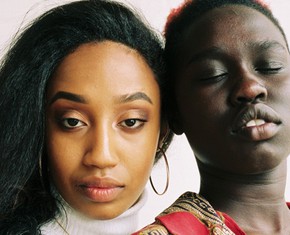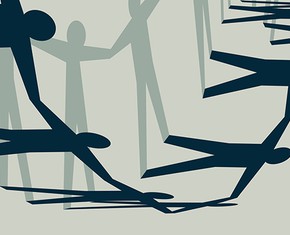The views expressed in our content reflect individual perspectives and do not represent the authoritative views of the Baha'i Faith.
Over the years, in my studies and career, I’ve learned some very valuable skills to help me improve my clients’ quality of life. As every individual is unique, the personality of each person can be as different as day and night.
One of my favorite principles in my Faith – the Baha’i Faith – is unity in diversity, which I always took to mean diversity of cultures. More recently, though, I’ve realized that diversity can also include personality types, such as introverts and extroverts, feeling or thinking types, sensing or intuitive types, task-oriented or people-oriented, and so on. We are all thinking and feeling humans that are best in sync when our actions mirror our thoughts, yet we don’t all react the same way because our personalities vary.
Baha’u’llah challenges us to a higher standard:
The essence of faith is fewness of words and abundance of deeds. – Baha’u’llah, Tablets of Baha’u’llah, p. 156
The subject of unity in diversity has long fascinated me. It’s about cultures, yes. But it’s also about the beautiful differences in each person’s personality that can stem from birth and consequently make a society thrive. Baha’u’llah tells us that each human is endowed with unique talents and faculties. It’s not surprising, then, that we may vie with one another. But we should not make comparisons that belittle anyone because of our differences.
The Universal House of Justice emphasizes the purpose of seeing and embracing our uniqueness:
Ponder together the true purpose of the world of existence and the life of man; consider the beauty and efficacy of a society founded on the principle of unity in diversity; and deliberate on that essential nobility of the soul that enables the individual to see his or her own happiness in the happiness of others. – The Universal House of Justice, March 21, 2011
Consider now a beautiful garden that has all kinds of different flowers. Each flower has its own unique beauty, but they differ in that one may need more water or less water, more sun, or more attention than another flower. The same principle can be applied to people in terms of what they need, or how they respond to a similar crisis. Or how much “people time” one person may need with friends or family, versus how much another person may need. One person may be energized by companionship, whereas another may feel drained by too much chit-chat.
For example, most of my life I’ve been an avid reader and thinker. I’ve needed more quiet and alone time to recharge, particularly at the end of a busy day with people. Going out with friends can be a lot of fun at first, but I become drained before my more extroverted friends. Because of my introversion, friends sometimes say to me that I should do less reading and spend more time socializing. I just smile knowingly to myself. As I get older and get to know myself more, I find more interest in my private projects than public moments.
This self-discovery occurred gradually for me. In my twenties, a psychologist that I worked for commented: “You’re a closet introvert.” It was only later, when I began my study of personality types and began to work with clients, that I came to understand what he meant.
What matters is that every individual come to understand his or her uniqueness, and what gives energy versus what takes energy. By appreciating the things that inspire creativity and service, while avoiding people and situations that seek to dominate or manipulate, one may discover and fulfill one’s destiny in this fleeting life.
The beauty of people is their diversity of thought, of personality, of culture. We need every member of the human family to create a prosperous and productive society. We need them to contribute to the diversity of jobs and careers that await those myriad personality types. Not everyone, for example, would like to be stuck in a research lab studying diseases with minimal day-to-day contact with others. Others may love the heightened risk of jumping out of planes to rescue people in need. And still others would rather be seated at a desk coming up with analytics for new apps. Then there are some who can inspire millions to live better lives. Such is a sampling of the wonderful diversity of personality types.
So, let us acknowledge that introverts may find their energy stores drained after too many distractions, whereas the extrovert becomes a live wire amid people and activities. It isn’t that the introvert doesn’t like people or is unsociable. It’s just that the energizing systems of the two “verts” are different and therefore unique.
Perhaps like me, you can see that being judgmental and not allowing for diversity of personality can stunt the growth of a society and its peoples. If by chance a neighbor doesn’t look at or respond to some event as you do, instead celebrate this diversity. Because if we don’t all react the same way to people, news or stimuli, may we appreciate the beauty of the lovely flower garden of humankind and learn to apply this principle of unity in diversity.
Abdu’l-Baha charms us with the beauty of the garden:
The world of humanity is like unto a rose garden and the various races, tongues and people are like unto contrasting flowers. The diversity of colors in a rose-garden adds to the charm and beauty of the scene as variety enhances unity. Why should we not look upon the human world with rose-colored vision? – Abdu’l-Baha, Abdu’l-Baha on Divine Philosophy, p. 18
















Comments
Sign in or create an account
Continue with Googleor